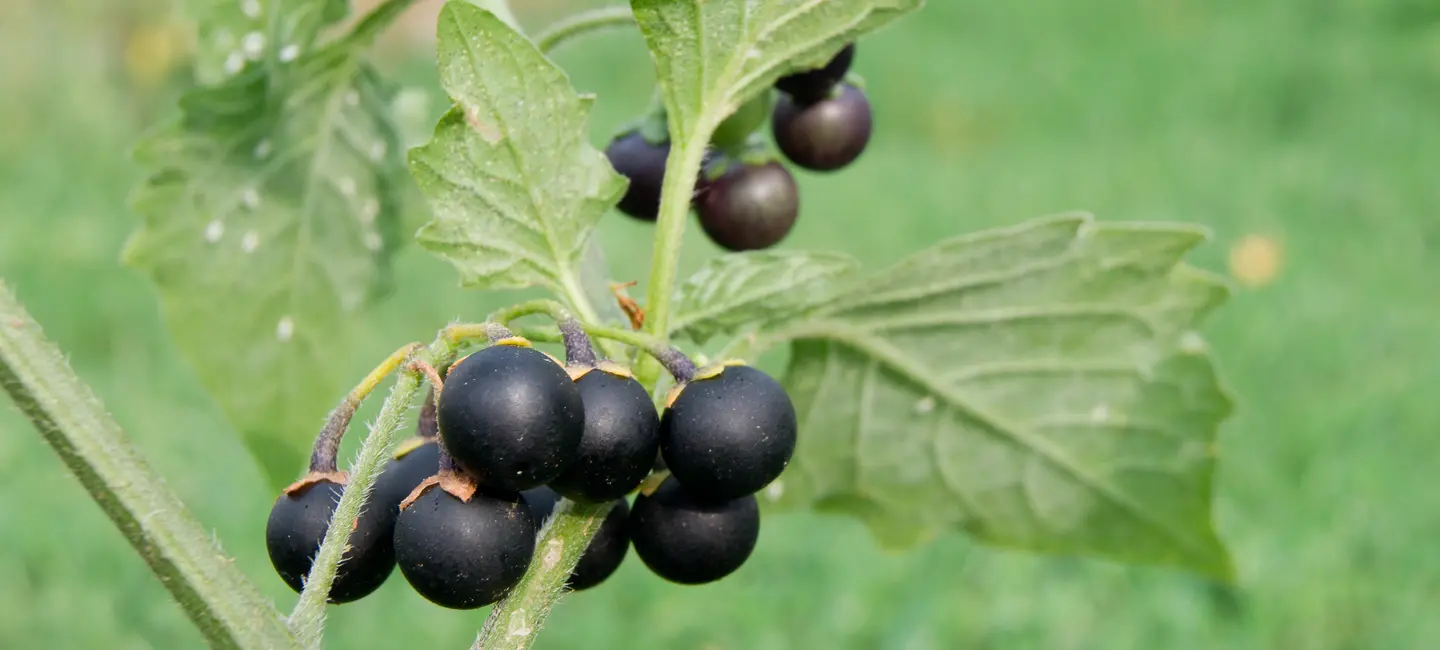
Black nightshade (Solanum nigrum) is a plant with a musk-like smell when wilting. It contains a chemical that can be toxic when consumed.
Black nightshade contains a chemical called solanine which is poisonous to humans. The green fruits contain the highest amounts of solanine and therefore are the most toxic parts of the plant.
People use black nightshade for stomach irritation, cramps, spasms, pain, nervousness, and many other conditions, but there is no good scientific evidence to support these uses.
Is It Effective?
There is interest in using black nightshade for a number of purposes, but there isn't enough reliable information to say whether it might be helpful.
Is it Safe?
When taken by mouth: Black nightshade unripe berries and leaves are likely unsafe. These contain a toxic chemical called solanine. At lower doses, they can cause nausea, vomiting, and other side effects. At higher doses, they can cause severe poisoning, which can lead to death.
There isn't enough reliable information to know if the ripe berries of black nightshade are safe or what the side effects might be.
When applied to the skin: There isn't enough reliable information to know if black nightshade is safe or what the side effects might be.
Special Precautions & Warnings:
Pregnancy and breast-feeding: It's likely unsafe to use black nightshade while pregnant. It might cause birth defects.
It is not known if Black Nightshade interacts with any medicines. Before taking Black Nightshade, talk with your healthcare professional if you take any medications.
There are no known interactions with herbs and supplements.
There are no known interactions with foods.
Black nightshade can be poisonous. There isn't enough reliable information to know what an appropriate dose of black nightshade might be. Consult a healthcare professional before using.
Blackberry Nightshade, Crève-Chien, Garden Nightshade, Herbe à Gale, Herbe aux Magiciens, Herbe Maure, Houndsberry, Kakamachi, Kakmachi, Long Kui, Makoi, Morelle Noire, Myrtille de Jardin, Petty Morel, Poisonberry, Raisin de Loup, Solanum nigrum, Tomate du Diable, Tue-Chien, Yerba Mora.
Information on this website is for informational use only and is not intended to replace professional medical advice, diagnosis, or treatment. While evidence-based, it is not guaranteed to be error-free and is not intended to meet any particular user’s needs or requirements or to cover all possible uses, safety concerns, interactions, outcomes, or adverse effects. Always check with your doctor or other medical professional before making healthcare decisions (including taking any medication) and do not delay or disregard seeking medical advice or treatment based on any information displayed on this website.
© TRC Healthcare 2024. All rights reserved. Use and/or distribution is permitted only pursuant to a valid license or other permission from TRC Healthcare.
